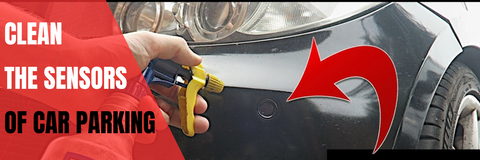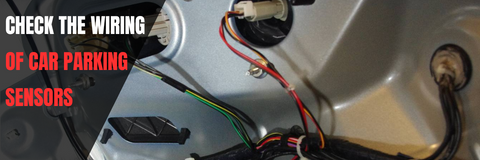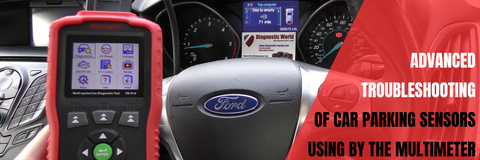Simple Ways You Can Troubleshoot Parking Sensors In Your Car - Hunt Parts
Posted by Hunt Parts on
Parking sensors have become an integral part of modern vehicles, helping drivers navigate tight spots and avoid accidental collisions. However, like any other technology, parking sensors are not immune to issues. Whether it's a false alarm or a complete lack of response, a faulty sensor can create more problems than solutions. But fear not, Hunt Parts, a leading auto parts replacement store in Canada, has got you covered. In this blog, we'll walk you through some simple ways you can troubleshoot parking sensors in your car.
Identify the Problem
Before diving into troubleshooting, it’s crucial to identify what exactly is going wrong. Here are some common symptoms of faulty parking sensors:
- Constant Beeping: The sensor emits a continuous beep when there’s no obstacle.
- No Sound: The sensor doesn't make a sound when an obstacle is nearby.
- Inconsistent Alerts: The sensor gives false alarms or intermittent beeps.
- Dashboard Error: A warning light appears on your dashboard.
Simple Fixes You Can Try
Clean the Sensors

The first step in troubleshooting should always be the simplest one. Sometimes, dirt, snow or debris can obstruct the sensor, causing it to malfunction. Simply wiping the sensor with a clean cloth can often solve the problem.
Check the Wiring

Another common issue is damaged or loose wiring. To check this, you will need to access the parking sensor system, which is usually placed in the rear bumper, which usually involves removing some interior panels. Once you've gained access, make sure all connections are secure and free from damage. Unplug and replug all electrical connections to ensure they're properly seated.
Perform a 'Click' Test
- Turn on your car and engage reverse gear.
- Have someone walk around the vehicle to each sensor.
- The functioning sensors will emit a 'click' sound, which is a good indicator that they're working correctly.
Consult the Owner's Manual
When in doubt, consult your car’s owner manual. This will provide you with model-specific troubleshooting advice and may help you resolve the issue without the need for professional intervention.
Advanced Troubleshooting

Use a Multimeter
A multimeter can be used to test the electrical current flowing through the sensor. If there is no current or it’s irregular, the sensor is likely faulty and needs replacement.
Diagnostic Scan
Most modern cars have an onboard diagnostic system. You can use an OBD-II scanner to read error codes and pinpoint the issue.
Check for Software/Firmware Updates
Some modern vehicles come with updatable software for their sensor systems. Check your vehicle's user manual or consult your dealer to find out if this is the case for your car.
Reset the System
In some cases, simply turning off the car, waiting a few minutes, and then restarting it can reset the sensor system and resolve minor glitches.
When to seek Professional Help
If all else fails, it may be time to consult a professional. Bring your car to a qualified mechanic who can accurately diagnose and fix the problem.
Conclusion
Troubleshooting parking sensors doesn't have to be a daunting task. With some basic understanding and a few simple steps, you can diagnose and often fix the issue yourself. For those who find that they need a replacement sensor, Hunt Parts offers a wide variety of high-quality auto parts to meet your needs.
Stay safe and happy parking!
